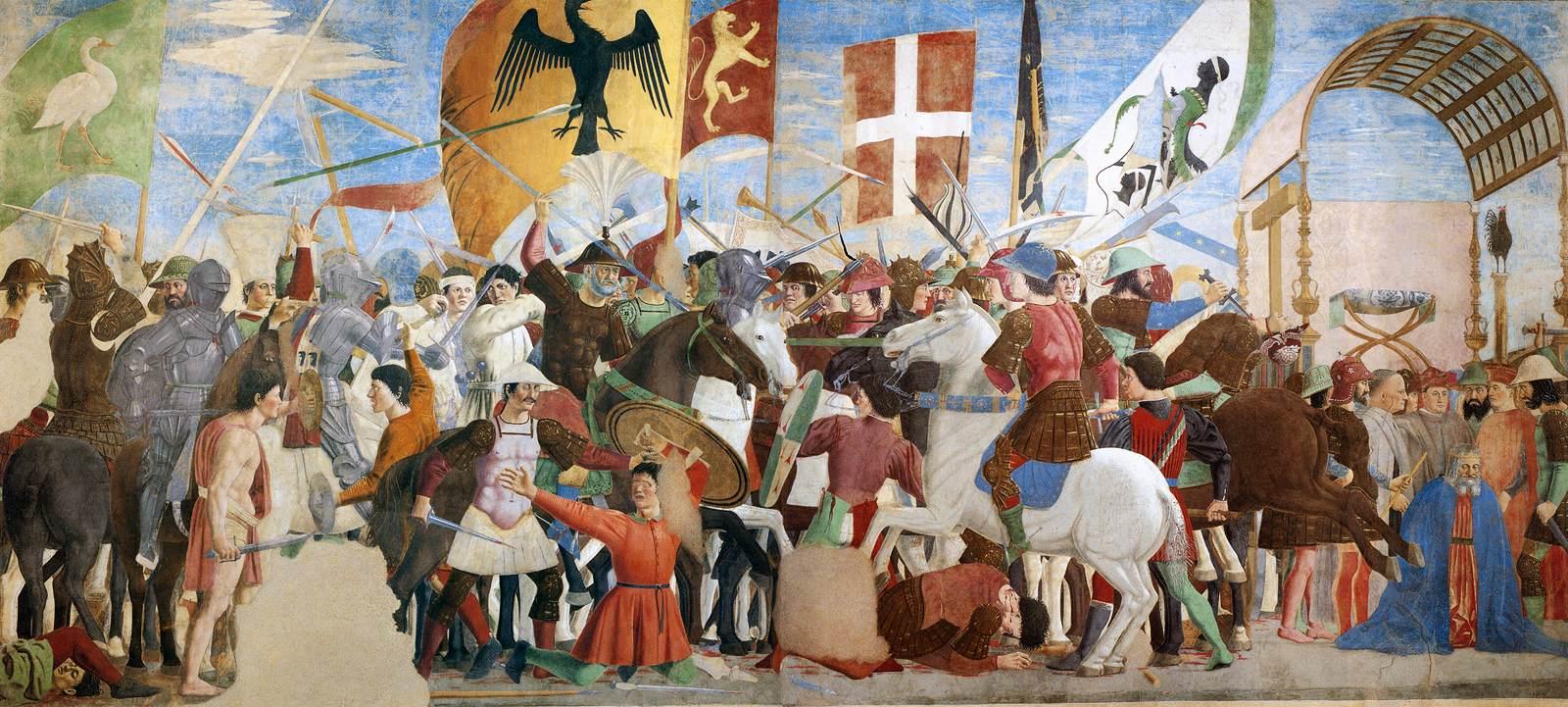Battle between Heraclius and Chosroes by Piero della Francesca, ca. 1466
 A larger image of the Battle between Heraclius and Chosroes by Piero della Francesca. |
|||||||
| Detail 3 | Detail 9 | Detail 8 | Detail 15 | Detail 14 | Detail 17 | ||
 A larger image of the Battle between Heraclius and Chosroes by Piero della Francesca. |
|||||||
| Detail 3 | Detail 9 | Detail 8 | Detail 15 | Detail 14 | Detail 17 | ||
PIERO DELLA FRANCESCA (b. 1416, Borgo San Sepolcro, d. 1492, Borgo San Sepolcro)
8. Battle between Heraclius and Chosroes
1452-66
Fresco, 329 x 747 cm
San Francesco, Arezzo
In the year 615, the Persian King Chosroes steals the True Cross, setting it up as an object of worship. The Eastern Emperor Heraclius wages war on the Persian King and, having defeated him, returns to Jerusalem with the Holy Wood.
The battle of Heraclius and Chosroes has little of the luminary magic of the battle of Constantine and Maxentius, perhaps because of its situation on a wall which never receives direct light. Piero includes no landscape, concentrating instead on the battle. He may have been guided in part by Roman battle sarcophagi, seen in Florence and Pisa, in which the compositional field is completely filled with interwoven figures in conflict. The motif of the horse rearing over a fallen enemy is common in Roman sculpture.
In representing the episode Piero has chosen to represent the grim mechanics of the slaughter: there are no beautiful patterns, no lovely light, and the armour has little allure. The legs of horses and people fill the lower part of the composition, while above masses of steel and flesh collide. There are incidents of utter brutality, as when a soldier near the throne jabs his dagger into the throat of another, or of pathos, as we watch the dying figure below the rearing horse. The dethroned monarch on the far right awaits the executioner's sword. Above him the True Cross is blasphemously incorporated into his throne.
Source: Web Gallery of Art